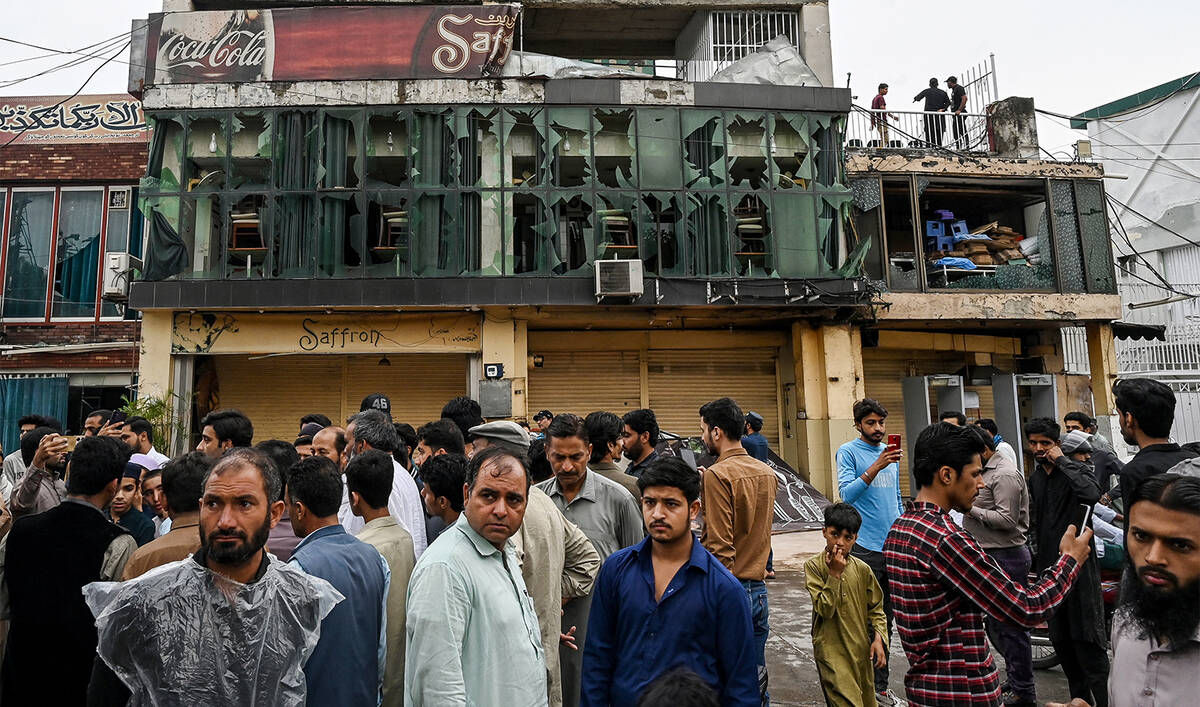KARACHI: The Pakistan Bureau of Statistics (PBS) announced on Friday weekly inflation reached 46.65 percent on an annual basis during the ongoing week, indicating an unprecedented price hike experienced by low- and middle-income consumers across the country during the holy month of Ramadan.
According to official statistics, the price of onions on an annual basis has increased by 228.28 percent while people have to spend 120.66 percent more to buy wheat flour. The price of tea has also gone up by 94.60 percent, bananas by 89.84 percent, rice by 81.51 percent, and potatoes by 57.21 percent.
The PBS statistics reveal that a 20-kilogram bag of flour, one of the most commonly consumed commodities, has witnessed an increase in price from Rs1,817 to Rs2,586. The flour bag was available for Rs1,172 last year in March.
According to analysts, inflation has escalated further due to a number of factors, including rising demand for food items in Ramadan and depreciation of Pakistan’s national currency.
“This is the highest ever weekly surge in inflation measured by the sensitive price index,” Samiullah Tariq, research director at the Pakistan-Kuwait Investment Company, told Arab News. “Ramadan demand, currency depreciation, and commodities price hike in the international market are key factors that have contributed to historically high inflation.”

Pakistani consumers complain they have been spending bigger chunks of their income on food items in recent months.
“I spend more than half of my salary on food to feed my family,” Muhammad Zeeshan, a private office worker, said. “All my income vanishes before the end of the month once I pay my house rent and utility bills, etc.”
Inflation measured by the Consumer Price Index more than doubled since March last year when it was recorded at 12.7 percent and reached 31.5 percent last month. The high inflation has particularly bothered the salaried class which depends on a fixed income.
“Inflation is a key indicator of the state of a country’s economy,” Dr. Khaqan Najeeb, former adviser to the finance ministry, told Arab News on Friday. “Pakistan’s economy is suffering from the harmful effects of inflationary pressure which is negatively impacting the economic lives of citizens and businesses alike.”
“Rising prices have hit households globally,” he continued. “However, they have a more pronounced impact on Pakistan since the country is heavily dependent on imports like petroleum products, edible oil, machinery, food, vehicles, mobiles, and industrial raw materials.”

Muslim devotees buy dates at a market before breaking their fast on the first day of the holy month of Ramadan, in Lahore on March 23, 2023. (AFP/File)
Najeeb said Pakistan’s low-income groups were primarily impacted by spiraling food inflation.
“Food-price inflation is crushing Pakistan’s low-income citizens who spend more than half of their incomes to feed their families,” he said. “Low agricultural productivity and the problem of regulated energy prices are two key domestic drivers of inflation in our economy.”
Some people complain about a lack of administrative will to control the prices of food items and other products, pointing out that consumers also suffer when profiteers charge higher rates.
However, the administration of Pakistan’s southern Sindh province says it has taken steps to deal with the issue by promulgating an ordinance that empowers officials from various government departments to check market prices.
“With the enforcement of the ordinance, the relevant department has been empowered to take action against profiteers,” Abdul Rasheed Channa, spokesperson for the province’s chief minister, told Arab News.
“The relevant departments will ensure that goods are being sold at the official rates,” he added. “The teams will raid markets, and the results will be visible in the next couple of days.”
As per a Sindh government notification released on Friday, officials from different departments will inspect the food quality, impose monetary fines, and shut down the businesses of offenders.


















